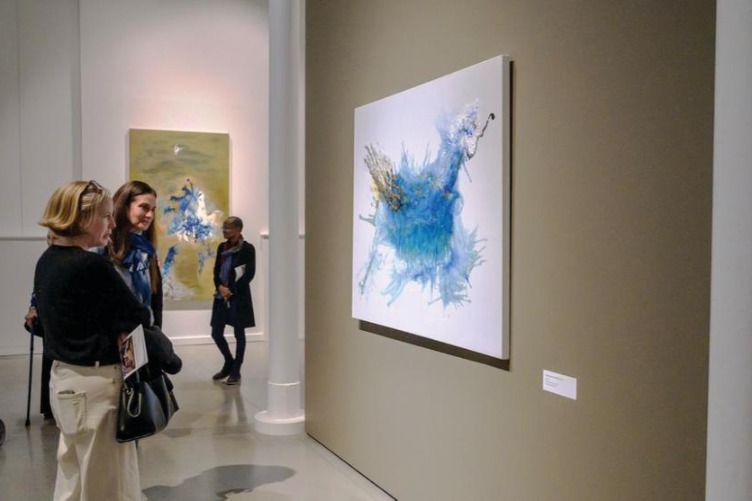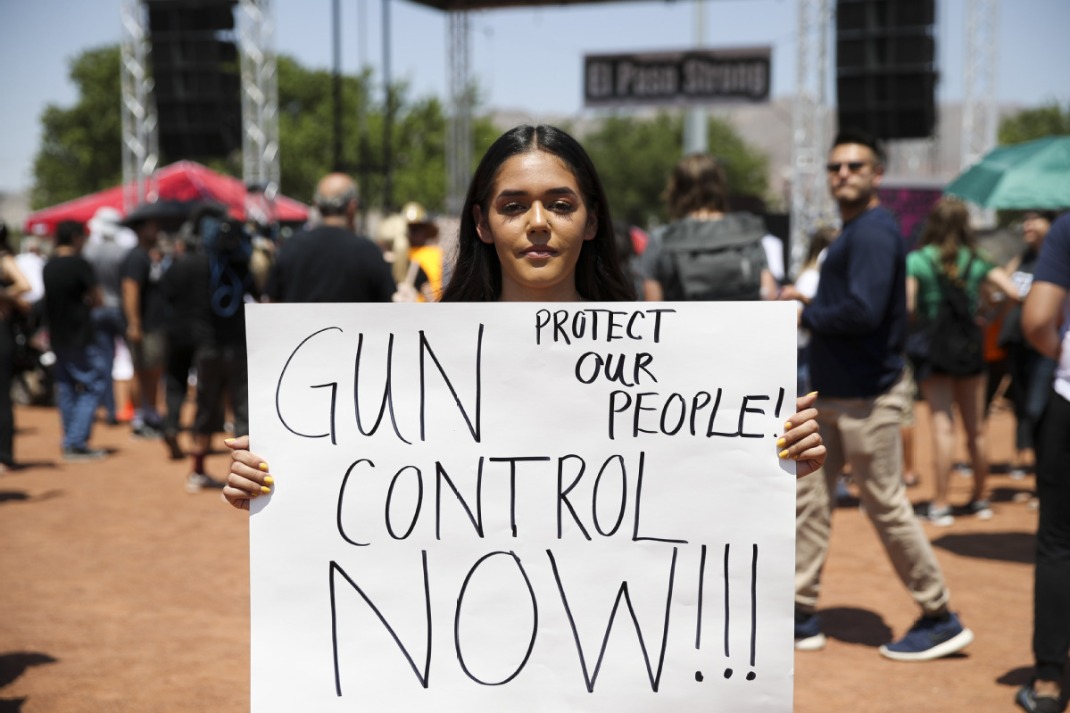Muslims in Europe face devastating 'dual dilemma'

Ezra, 84 years old, violently attacked in the street because she wears a headscarf; Paula, 25 years old, not allowed to accompany her children to school because she looks Muslim; Youssef, questioned five times a week by the police; Shahida, ridiculed as "suicide bomber" by two white youth at the bus stop…
These are real scenes being neglected in the streets of European countries. Muslims living in Europe strive to counter discrimination that deprives them of dignified and decent lives. However, when seeking restitution, they realize for European governments and mass media, they are the "problem" instead of a minority longing for equality. They find themselves in the desperate dual dilemma of institutional racism and presumption of guilt.
Institutional Racism: An Invisible Barrier to a Dignified Life
In the EU and UK alike, structural forms of racial discrimination and inequality have led to poorer outcomes for Muslims in many areas of life.
Work and Well-being. The European Commission noticed in its 2019 report "Countering Racism and Xenophobia in the EU" that "people from ethnic or racial minorities in the EU experience higher risks of economic hardship, poor quality housing, residential segregation, unemployment and assault, whose individual impact is quantifiable in lost earnings from €1.8 billion up to €8 billion." In education, a 2016 European Monitoring Centre on Racism and Xenophobia study in the UK shows 33 percent of Muslims of working age have no degrees or qualifications – the highest proportion for any religious group. Also, in terms of housing, Muslims and other migrants in Germany are highly segregated and likely to be found living in overcrowded conditions, with less access to amenities and paying comparatively higher rents. They have greater insecurity in rental contracts and are less likely to be homeowners.
Workplace discrimination is the biggest elephant in the room. A report filed by the EU Agency for Fundamental Rights in 2017 indicated almost one in three Muslims felt discriminated against when looking for a job. Candidates who openly identify as Muslim in their CV receive fewer invitations to a job interview compared to equally qualified candidates with a religiously neutral CV. In the United Kingdom, 12.5 percent of Pakistani women are asked about marriage and family aspirations in job interviews, whereas only 3.3 percent of white women are asked such a question.
Police Abuse and Violence. On one hand, the criminal justice process targets Muslim communities disproportionately. Law enforcement officers still excessively profile Muslims. In the UK, Muslims make up about 15 percent of prisoners while they are only about 5 percent of the whole population. During the COVID-19 pandemic, in a period when multiple religious festivals occurred, only the Muslim population was specifically targeted by public announcements to remain in their houses and avoid gatherings.
On the other hand, Muslims are increasingly becoming victims of physical attacks solely because of their faith. In France, home to Western Europe's largest Muslim community, the number of Islamophobic attacks on Muslims and mosques jumped sharply by 53 percent in 2020 over the government's stance toward the religious minority. In Germany, 871 hate crimes against Muslims were reported to the police in 2019, including crimes against Muslim religious sites and crimes where Muslims were physically injured. What's more, institutional racism can also result in an absence of appropriate response to racially motivated crimes that encourages potential new perpetrators and increases the negative consequences suffered by the victims.
Marginalization and Systematic Crackdown on "Alien" Culture. Xenophobic nationalism frequently portrays Islam as a religion alien to the national culture and identity of many EU member states, marginalizing Muslims both in consciousness and in social reality. In 2019, the Court of Appeal of Milan, Italy authorized the use of illustrated signs to prohibit access to health facilities of individuals wearing a burqa. Recently, the Belgian constitutional court has allowed higher education institutions to forbid religious signs, thus excluding Muslim women wearing headscarves from education. In May 2019, the PVV (Party for Freedom) in the Netherlands called for a ban on several Islamic expressions, such as the building of mosques and the printing of the Qur'an.
A more alarming trend is the growing number of mainstream political parties adopting restrictive policies regarding migration and integration that were previously associated with right-wing parties. Gérald Darmanin, French Interior Minister, announced the dissolvement of anti-racist group the Collective Against Islamophobia in France and Muslim charity the BarakaCity in December 2020, along with the forced inspection and possible closure of 76 mosques in the country. He also wrote on Twitter that "of the 18 places of worship that were particularly monitored at my request, 9 could be closed", and claimed 34 police operations against Islamist individuals and associations had been carried out.
All figures and cases above reveal an ethnic minority generally in poverty and uncertainty, living at the margin of society, yearning for equality and protection, and in most cases disappointed by their governments.
Presumption of Guilt: Framing Muslims as the "Problem"
Islamophobic Rhetoric and Scapegoating. The media, alongside politics, is the most influential space where Islamophobia can be disseminated and strengthened. A people in trouble is portrayed as the trouble itself. In Germany, a Bild article is titled "Out of Respect for the 'Salvation' Day-Care Centre Takes Pork from the Menu", implying a subversive Islamization of German society. Websites such as Resistance Républicaine, Riposte Laïque, Boulevard Voltaire, TVLibertés and Breizh-info openly brag about being Islamophobic and base their content upon the "clash of civilization" and "reverse colonialism" theories.
Islamophobia is normalized by a discourse used by those in power. In November 2019, then-French interior minister Christophe Castaner stigmatized Muslim people by using rhetoric that stems from the far-right ideology of the Great Replacement, i.e. the demographic and cultural replacement of white European populations with non-European peoples. He said, "it is not the debate around the headscarf that concerns me, but rampant Islamism, in certain neighbourhoods, which wants to be a political system competing with the Republic". He thus, as commented by a 2019 SETA Foundation for Political, Economic and Social Research report, invoked the phantasm of an "Islamist parallel society".
Islamophobic terror further triggers the scapegoating of Muslims, for any perceived offense, not terrorism. Within weeks of COVID-19, hate speech holding Muslim minorities responsible for the crisis spread rapidly online. Some mainstream media have disseminated fear-mongering headlines and, in some cases, letting readers believe the fasting period of Ramadan could exacerbate the outbreak of the virus. Migrants were also depicted as potential risks and responsible for the sanitary crisis.
Signals of Radicalization. Due to the lack of clear, workable definitions of "extremism", "terrorism" and the criteria used to refer individuals considered at risk of radicalization, European countries witness increased police profiling, in some cases even absurd policies against Muslims and further erosion of their rights.
In Catalonia, Spain, a program called Detection, Prevention and Intervention in Processes of Radicalization and Violent Extremism was introduced in 2016, in which police officers and civil servants train schoolteachers in so-called "radicalization detection" tools. A leaked document by the newspaper LaDirecta shows "radicalization indicators" were, among others, to be "born in a family from a Muslim-majority country," hijab-wearing, asking for halal food at school and not drinking Coca-Cola. Also, in the French University of Cergy-Pontoise, an email was sent to the teaching staff asking them to list students and teachers who show "weak signals of radicalization" such as "behavior changes towards women", "prayers in the buildings of the university", "sudden interest in national politics and international relations" and "sudden interest in religion".
"Counter-terrorism" laws and policies have vastly exacerbated Islamophobic sentiment. In Spain, the June 2004 public opinion barometer of the Elcano Royal Institute on "Islamic terrorism and religious fanaticism" found that 80 percent of the respondents would regard anyone practising Islam as "authoritarian" and 57 percent as "violent". In Italy, a survey on intolerance among young people suggests more than 50 percent of the sample believes Muslims have "cruel and barbaric laws" and "support international terrorism". Security-based counter-terrorist measures inefficiently target innocent Muslim individuals and families, and generate antagonism from the mainstream population.
If Ezra, Youssef or any other European Muslims suffering from institutional discrimination wish to seek help, what they receive may not be sympathy and justice but resentment and stigmatisation. Even worse, this hostility can further provoke grievance and hatred of Muslims which lamentably reinforce the discrimination they bear. The dual dilemma has created an endless cycle of poverty, violence and prejudice for European Muslim communities. Unless European governments respect Muslims' rights and adopt equality and social inclusion policies, the cycle could never be broken.
The author is a commentator on international affairs.

































